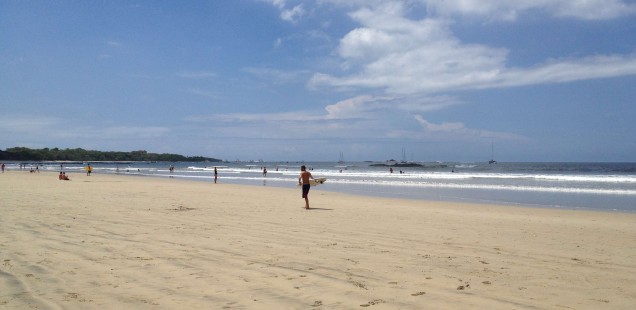
Why did we pick Costa Rica?
The question we’ve been asked the most so far is why we picked to spend this time in Costa Rica as opposed to another country. For people who are familiar with Costa Rica, the follow-up question is how we decided on Jaco. It all goes back to what we were looking for in this experience.
Just like there are no flawless people, there are no flawless places. You can search high and low, but you’re not going to unearth the perfect environment. What you can do, however, is create a sabbatical that is perfect for you. As Heather and I mulled over what would be the right sabbatical for us, we began by defining what we wanted to accomplish during this time, and then made a list of pros and cons for each city or country we were considering.
Some of my hardcore, frequent-traveler friends seemed disappointed we eventually chose Costa Rica. They viewed it as a fairly unimaginative selection. I understand their point. Tourism is a staple of the economy, there are a lot of North American expats here, and there is an inordinate amount of information about Costa Rica all over the internet. From their standpoint, despite its beauty, Costa Rica seemed a little mundane.
Our response to that critique is simple. First of all, spending time somewhere that other people think is really cool wasn’t a criterion for us. Secondly, we’re still all for going off the beaten path. There are a lot of opportunities to do that here, and we intend to do so quite a bit via weekend trips. But for us at this stage of our lives with two kids to boot, relocating to somewhere “undiscovered” or really edgy (i.e. dangerous) wasn’t appealing. In the past, I’ve been to places where a local told me, “I wouldn’t walk up that way if I were you. There’s a good chance you’ll get chopped with a machete and robbed”. Yep. That was definitely edgy. We weren’t looking for that.
In determining exactly where to do this, we considered a number of factors. We took those factors, broke them down into categories, and then researched the information for each country. Below is a snapshot of the analysis we did for Costa Rica.
Crime
I haven’t seen the 2013 crime statistics for Costa Rica yet, but I have seen them for 2012. Costa Rica has a population of about 4.8 million people, similar to the state of South Carolina. In 2012, there were about 400 murders in Costa Rica. In 2012, there were about 324 murders in South Carolina. Per 100,000 residents, Costa Rica had roughly 8.33 homicides and South Carolina had 6.86. To put those numbers into further perspective, Costa Rica’s homicide rate is lower than each of the following U.S. cities: Atlanta, Aurora, Bakersfield, Baltimore, Boston, Buffalo, Chicago, Cincinnati, Cleveland, Dallas, Detroit, Fort Wayne, Fresno, Houston, Indianapolis, Jacksonville, Kansas City, Louisville, Memphis, Miami, Milwaukee, Minneapolis, Mobile, Nashville, New Orleans, Newark, Oakland, Oklahoma City, Omaha, Philadelphia, Pittsburgh, St. Louis, Stockton, Toledo, Tulsa, and Washington, D.C.
The canton where we are living in Costa Rica is Garabito. From what I can tell, someone was murdered here in 2010. Other than that, I believe there have been zero murders since then. Not only is our particular neighborhood extremely safe, but with zero homicides in the last few years, the whole surrounding area is much safer than what I’m used to.
Does that mean we don’t have to be vigilant? No. We absolutely do. Although we haven’t been a victim of it, theft is a problem and the criminal justice system here doesn’t necessarily seem to be very efficient. A common scam can be read about here http://www.ticotimes.net/2014/07/20/us-couple-the-latest-victims-in-a-flat-tire-scam-that-targets-tourists. We did indeed have a bolt in the tire of our rental car the first time we visited, but luckily it only created a slow leak. We’re still not sure if it just happened to occur or if it was intentional.
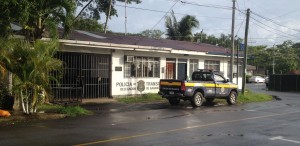
Although crime here isn’t bad, should we be concerned that even the police stations have bars on the windows?
I’ve had two different bikes stolen in Pittsburgh, so it’s not like theft is a foreign concept to us. We address it here by trying to pay attention to our surroundings and by trying not to do anything imprudent. People have left their iPhones, iPads, and passports unattended on the beach and then have been surprised when said items came up missing. As we teach Maddie and Atticus, most people are good, but there are unscrupulous people everywhere. Watch your stuff.
Schools
If you have children, schooling is a prime consideration in deciding where to take your sabbatical. Costa Rica was one of the first Latin American countries to make education of children mandatory and to provide it for free. I’m not sure how it’s determined where a school is built, but after driving all over the country, schools seem to be everywhere. The average literacy rate worldwide is about 84%, the U.S.’s is 99%, and Costa Rica’s is 96%.
Nonetheless, we couldn’t make public school work here. For starters, the school calendar is different. So Maddie would have had to lose a semester, which would have essentially meant losing a year. For a kid that is already two grades ahead in math, this made no sense. Moreover, the expectation would have been that she is already fluent in Spanish. I have no doubt that Maddie and Atticus are going to be pick it up quickly, but dropping Maddie into that situation could have been disastrous. So that left private schools.
Considering private school as an option was counter to our general philosophy. We live in Pittsburgh. Maddie attends the public school for which she is zoned. Her school is by no means a problem-free institution, but it has a great principal, dedicated teachers, and a good group of students. She has learned a lot there both academically and socially. There is something to be said for being friends with kids from neighborhoods that some people are scared to drive through. She sees those children as classmates and teammates, not as the “other” who should be feared. It’s our opinion that exposing her to the real world now will benefit her throughout her life.
There are a large number of excellent private schools in and around the San Jose area. But we didn’t move from the landlocked city of Pittsburgh to be in the landlocked city of San Jose. We wanted to be on the beach. This desire narrowed our list of cities even further. Some of the private schools in Jaco are on the Costa Rican calendar and some are on the U.S. For various reasons, we couldn’t make the local private schools work for her either. Thus, with the help of staff in the Pittsburgh Public School system, we’ve been able to come up with a hybrid solution. She is technically going to be home-schooled by Heather, but socially be able to take advantage of some of the activities that are offered for kids her age by the schools here in Jaco.
As for Atticus, he will begin pre-school in a Montessori school in September http://www.ficustreecr.com/. He just started in the school’s summer program this week. Other than a bout with what might have been heat exhaustion, his transition has been great. All of the other kids in the camp already knew each other. But, as the school psychologist pointed out, Atticus rolled in like he owned the place. He’ll be just fine.
Beach
Living at the beach was high on our list of priorities. Not only do we find the ocean itself to be beautiful and peaceful, but the energy from a coastal town is just different from other places. We wanted that. Also, it’s pretty good motivation to get into shape. There are some healthy, fit people around town. Apparently, biking everywhere (and sometimes carrying your friend or your children on your bike) and surfing a lot will get you pretty shredded. No gym membership needed.
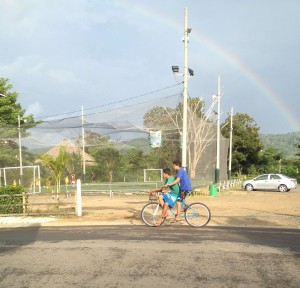
Bikes are the norm here. It’s common to see people giving each other rides. Running your kids around in your car is exhausting enough. Imagine doing it like a lot of parents do here, on a bike in 90 degree weather.
Warm Climate
Some people don’t mind cold weather and really look forward to that first snow of the season. We absolutely mind cold weather and we don’t look forward to that first snow. In fact, we both curse those conditions each and every time they exist in Pittsburgh. Costa Rica is technically in the tropics, but the country has 12 climatic zones. It is hot and humid where we’re living, but temperatures can vary fairly widely due to elevation and other factors. San Jose, for example, is generally much cooler than where we live. It’s hot in this region and we love it. But we’re well aware of the fact that it is too hot and humid here on the coast for many people.
Language
Given our desire to travel and our exposure to friends who are multilingual, it’s absolutely ridiculous that we’re not already fluent in a second language. Learning Spanish made sense to us because (a) it opens up the possibility of traveling to about 20 other countries and speaking their primary language and (b) about 38 million people living in the U.S. speak Spanish at home right now. How you feel about that last fact is irrelevant. In general, the more people with which you can effectively communicate, the better off you are.
Health Care
The United Nations has ranked Costa Rica’s health care system in the top 20 worldwide, and number 1 in Latin America. They have, gasp, Universal Health Care. Additionally, they offer private insurance that is pretty reasonable. Given Atticus’ proclivity to engage in dangerous behavior, it was important for us to know we had somewhere to take him when the inevitable happened.
Another underestimated health benefit we weighed was being able to drink the water. I’ve been to a lot of countries where a visitor can’t drink the tap water without getting sick. Not only is constantly having to use bottled water expensive and bad for the environment, it’s just a hassle. Not getting ice in your drink, worrying about whether your salad was washed with tap water, and having to brush your teeth with bottled water all become burdensome. We didn’t want to deal with that for a year.
Political Stability
The President of Costa Rica abolished the military on December 1, 1948. Of the 21 or so countries that technically have no military, Costa Rica is the largest. Without a military, a country can’t defend itself. At the same time, without a military, a country is less likely to have a coup or a civil war. The budget previously dedicated to the military now goes to security, education, and culture. As U.S. citizens, we take for granted that our government isn’t going to get overthrown (I guess unless you’re a member of a fringe group who thinks they are going to do the overthrowing). In planning this sabbatical, we felt political stability needed to be a part of the discussion. Although it would have been something interesting to write about, hanging out at the U.S. embassy while waiting for riots to dissipate wasn’t our view of an ideal time.
Environmental Awareness
Over 27% percent of Costa Rica’s land is protected. These protected lands fall into classifications such as national parks, wildlife refuges, and forest preserves. Incidentally, the U.S. does a good job of this as well. We’ve also set aside about 27% of our land for similar uses. As for electricity production, only 32% of Costa Rica’s electricity is generated by fossil fuels, whereas it’s closer to 75% in the U.S.
Although the environmental issue is important to us, we understand that focusing on high environmental standards is a bit of a luxury. If someone is eking out a living and barely able to feed his or her family, is recycling a plastic bottle or minimizing water pollution really going to be that individual’s main priority? We’re happy to be in a country where there are people (by no means all) who are taking steps in the right direction to protect their ecological resources.
Cultural Differences
I loved seeing animals in African countries that aren’t found in the wild anywhere else in the world. But I was even more interested in the people living in those countries than in the animals. I’ve always been fascinated by variances in societies. For this sabbatical, we wanted to be somewhere that was different from what we know.
In terms of heritage, Costa Rica is not as diverse as some other Latin American countries. Most people claim Spanish heritage. There are, however, Native Americans, Asians, people of African descent, and mixtures of all of those groups. The first Africans in Costa Rica came as slaves who were used for agricultural labor. Slavery was abolished in Costa Rica in 1824. But blacks, primarily from Jamaica, migrated to the country in the late 1800’s to build the railroad. These Jamaicans settled on the Atlantic side of the country. To this day, that area has a distinctly Caribbean feel due to their influence. We’re looking forward to seeing that region.
Aside from differences on a macro level, living in another country forces you to think about differences on a micro level. We’re from an area where electricity is relatively cheap. Here in Costa Rica, the kWh price is similar to that of Hawaii, which is to say it is expensive. That fact changes peoples’ behavior. Even if folks have air conditioning, they run it a lot less.
We’ve also noticed the expense of electricity has an impact in terms of the packaging of products. Shelf-stable, aseptic packaging is used here a lot. This is more Heather’s area of expertise than mine, but I’m told the manufacturing process has less of an environmental impact and the products have the obvious benefit of not needing to be refrigerated until they are opened. What this means, however, is that products we’re used to seeing in plastic or glass containers are in aseptic packaging or recyclable plastic pouches. Heather sent me to get mustard and I walked by it five times before I realized the packaging was different than what I’m used to.
Another minor example is the charcoal. Because we have the time, we’re eating at home more than ever before. It gets pretty hot inside our house. So we have been grilling outside quite a bit in order to run the oven less. I have seen Kingsford charcoal in an upscale store, but a bag of it was something like $13. The bag of the local, Costa Rican stuff was closer to $3. So I’ve been using it. This “charcoal” has, however, become my nemesis. Every time Heather says she wants to make something on the grill, I approach it like I am preparing for an MMA fight and the charcoal is my opponent. What is the problem with this charcoal you ask? Oh, I don’t know, it doesn’t catch on fire. I don’t mean it’s just a little difficult to get going. I mean that if we built homes out of this flame-retardant substance, we could dismantle all fire stations worldwide.
I could go on, but I know a breakdown of this nature is extremely boring to most people. The upshot is that we did this sort of analyzing for each country on our list and then compared the results. For us, Costa Rica rose to the top.
I do, however, want to be clear on one point. Just like anywhere, there are negatives here as well. It’s tough to write something critical about a country as a visitor without offending people. I’ve seen many blogs where a writer says something negative about a place he or she is in, and then is inundated with suggestions to leave it if they don’t like it. That type of response isn’t warranted, especially if someone is pointing out the truth.
Here’s one of my criticisms. For a country which markets itself as an ecotourist’s dream, they desperately need to improve their wastewater management. About 96% of urban wastewater is discharged into rivers and streams untreated. This waste can eventually make its way to the ocean. When swimming in the ocean, we make sure we stay far away from any estuary that might be flowing into it. But we see people playing in those streams daily. For Costa Rica to meet the goals it has set for itself from an environmental management standpoint, this is something that needs to be addressed.
I haven’t decided yet if Costa Rica’s “pura vida” saying (which literally translates as “pure life”) is truly embraced, or if it is just a marketing slogan. The people do seem happy here. And despite the large and small differences, we’re loving this experience thus far. Stay tuned.

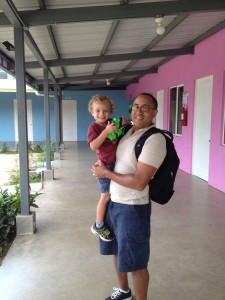
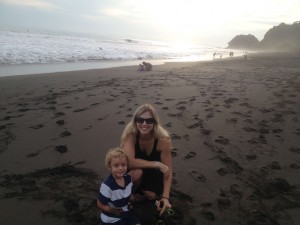
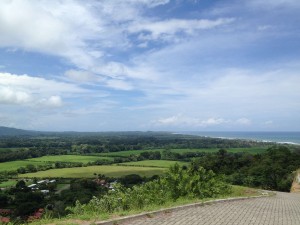
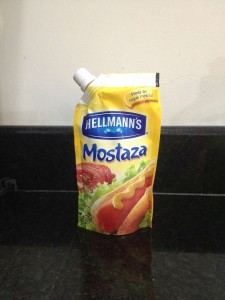
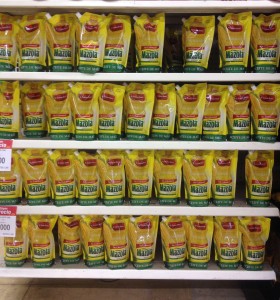
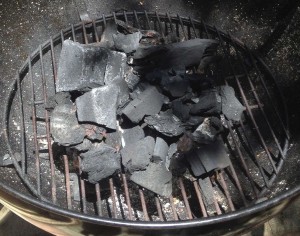
Hi Jamie, I’m surprised no one else has left a comment on this post. What other countries did you consider? My wife and I were thinking about trying to retire early to a country with low healthcare costs since Medicare doesn’t kick-in until 65. Outside of healthcare, we’ve heard good things about CR, Panama, and Belize. We’d also like to consider the northern Yucatan peninsula, MX. We’re at the beginning stages and have visited Panama and Belize on vacation which gives a very narrow view of the countries.
I’ve read many of your blog posts today (I stumbled upon your blog from a search on what it’s like to drive from San Jose to David, Panama–now I know that’s not going to happen). The bit about the charcoal made me laugh out loud. We want the beach life but moving to Central America seems like such a hassle! I wish Florida and healthcare wasn’t so expensive.
Thank you for your comment. In addition to Costa Rica, other places on our original list that we considered included Panama, Nicaragua, Ecuador, Puerto Rico, Mozambique, Mauritius, Portugal, Spain, France, and Hawaii. Among the litany of requirements we had, one major one was that we wanted to be on a beach. We’ve been to Belize and really liked it, but if we were going to do our sabbatical in Central America, we wanted to go somewhere where we would be forced to learn Spanish. After weighing all of the pros and cons of each locale, Costa Rica rose to the top for us (for our particular purpose of a one year sabbatical).
Moving to another country is indeed a hassle. There are so many things to consider. But it’s totally doable. Picking somewhere to retire forever is a whole different analysis. The place you select should depend a lot on your particular needs. For example, if you want to live at the beach and can withstand heat and humidity, Costa Rica is a great choice. The beaches are diverse and beautiful. But it is hot. If you prefer cooler weather that is about an hour or so drive from a beach, then Costa Rica still might be a good option.
Where Costa Rica might not be competitive is in the cost category. In our experience, examples of items that are not cheap are gasoline, cars, electricity, clothing, and U.S. style food. Examples of items that are inexpensive compared to the U.S. are healthcare, rent (depending on where you are), fruits & vegetables, childcare, schooling, and car repair. Think about it like this. If you want to live exactly like you would in the U.S., then you’re probably better off remaining in the U.S. Otherwise, aside from not embracing the culture of the country you are in, you will be paying premium prices on items that are imported. When it comes to the numbers, a lot simply depends on your particular lifestyle.
The best advice I can give is for you to be honest with yourselves about your likes, dislikes, and tendencies and then think about countries in the context of how you’ll actually live day in and day out. That way, you won’t be one of those couples who ends up being regretful about their decision. Keep me posted on where you’re leaning toward. Best of luck.